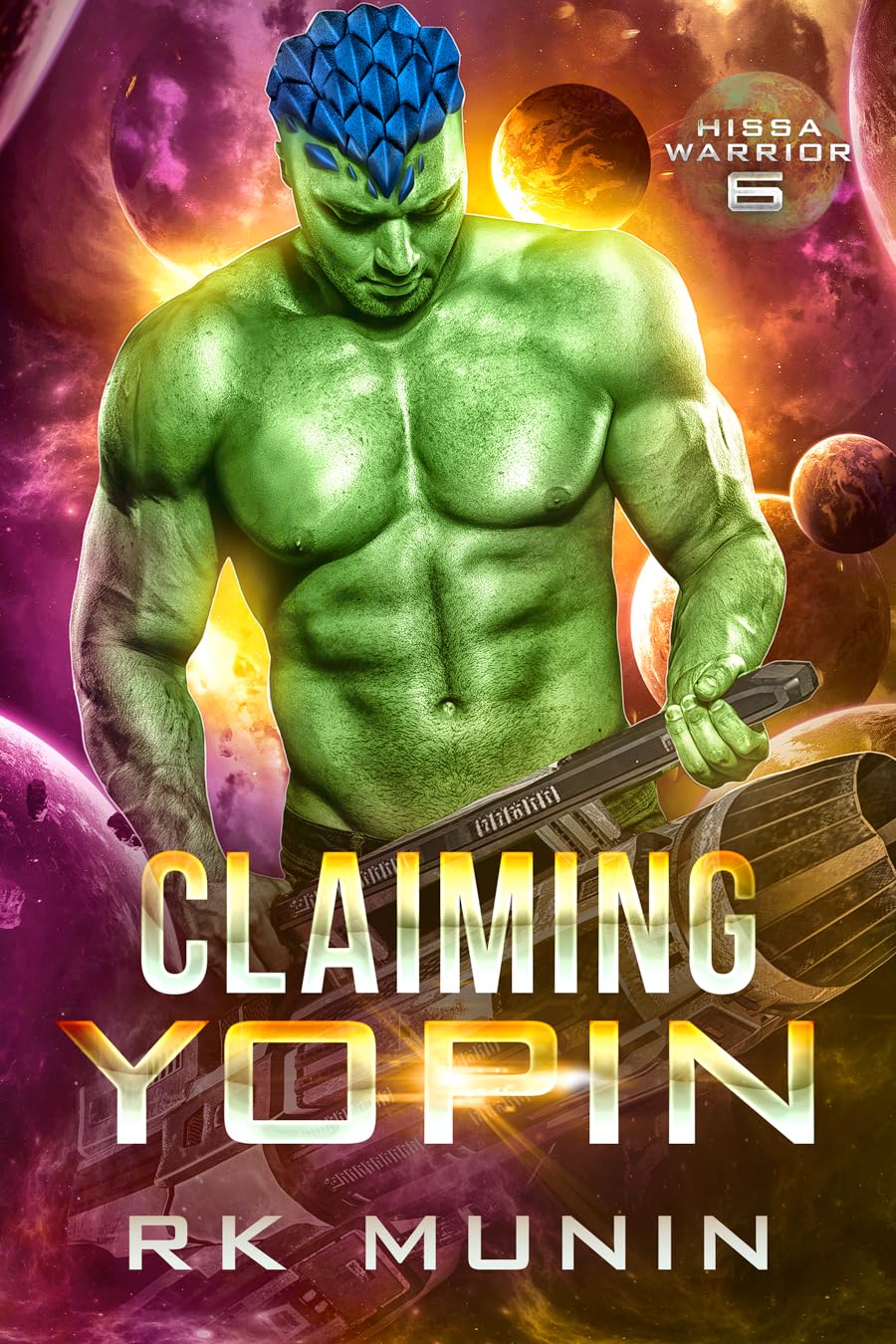“Claiming Yopin” by RK Munin is the sixth installment in the “Hissa Warrior” series, a sci-fi alien romance saga that continues to captivate readers with its blend of interstellar action, complex relationships, and deep emotional resonance. This narrative introduces us to Mouse, a Decanted human female with a unique and burdened past, and Yopin, a Hissa warrior of remarkable size and gentleness whose bond challenges the conventions of strength and compatibility.
Mouse’s journey from a derelict spaceship to the safety of Bicoma introduces a compelling dynamic of recovery and discovery. Munin expertly explores the concept of Decanted humans, a group created through a blend of human and alien DNA, grown in vats, and sold into slavery far from Earth. This backdrop serves as a critique of commodification and displacement and establishes a universe teeming with potential mates for these women, desperate for connection and continuity of their species.
While well-intentioned, the Hissa’s eagerness to find Decanted females inadvertently triggers Mouse’s trauma, illustrating the nuanced portrayal of consent and autonomy in Munin’s universe. Mouse’s struggle for independence amidst a sea of well-meaning suitors adds layers to her character, showcasing her resilience and determination to carve out a path on her own terms.
Yopin, as her chosen protector, embodies a rare combination of physical might and emotional sensitivity. His unwavering support and understanding of Mouse’s needs highlight a mature, consensual approach to relationships, setting a standard for the other warriors. The dynamic between Mouse and Yopin transcends the usual tropes of alien romance, meditating on mutual respect, healing, and the power of being truly seen.
Munin’s world-building shines in “Claiming Yopin,” expanding the reader’s understanding of the Hissa and their customs, the political landscape of their war with the Kaklans, and the plight of the Decanted humans. The narrative seamlessly integrates these elements, driving home the themes of family, belonging, and the lengths one will go to protect loved ones.
The revelation of Mouse’s secret ability and implications are handled carefully, avoiding the pitfalls of exploiting her talents for narrative convenience. Instead, Munin uses this plot point to delve deeper into issues of trust, privacy, and the ethics of power. Yopin’s role in safeguarding Mouse’s autonomy while supporting her mission underscores the depth of their connection, making their journey not just one of romance but of profound companionship and mutual growth.
“Claiming Yopin” is more than a love story; it is a tale of overcoming adversity, embracing one’s identity, and the transformative power of understanding and acceptance. Munin’s prose is engaging, her characters well-drawn, and her plot rich with emotional and speculative complexity. This installment is a standout in the series, offering both a satisfying standalone experience and a meaningful contribution to the larger narrative arc. Fans of sci-fi romance will find “Claiming Yopin” a rewarding, heartwarming read, replete with the promise of more adventures in the intriguing universe of the “Hissa Warrior” series.

